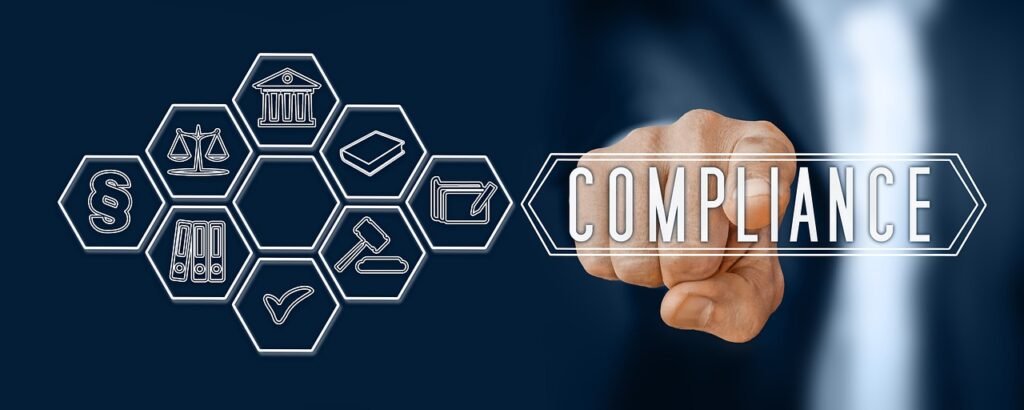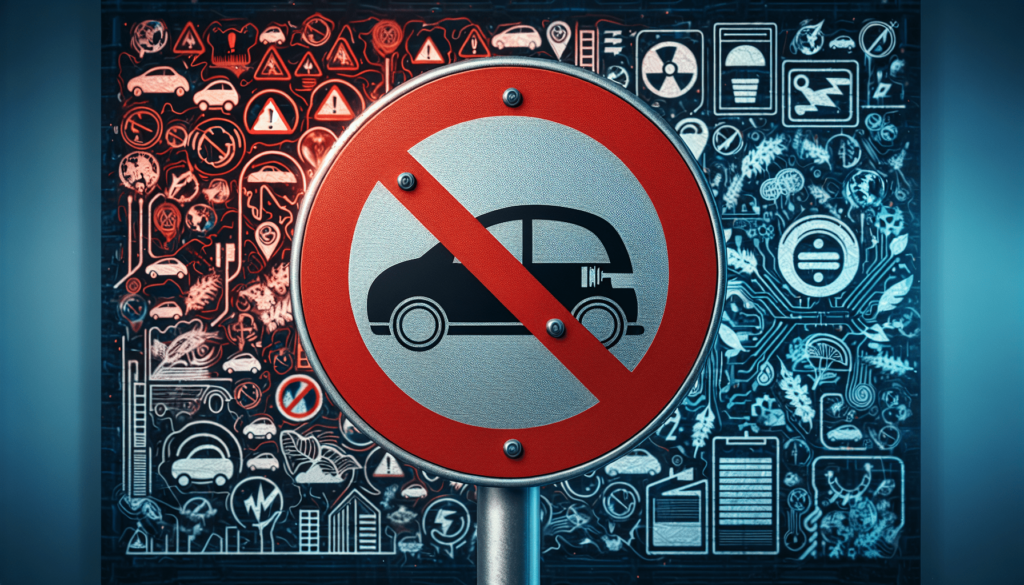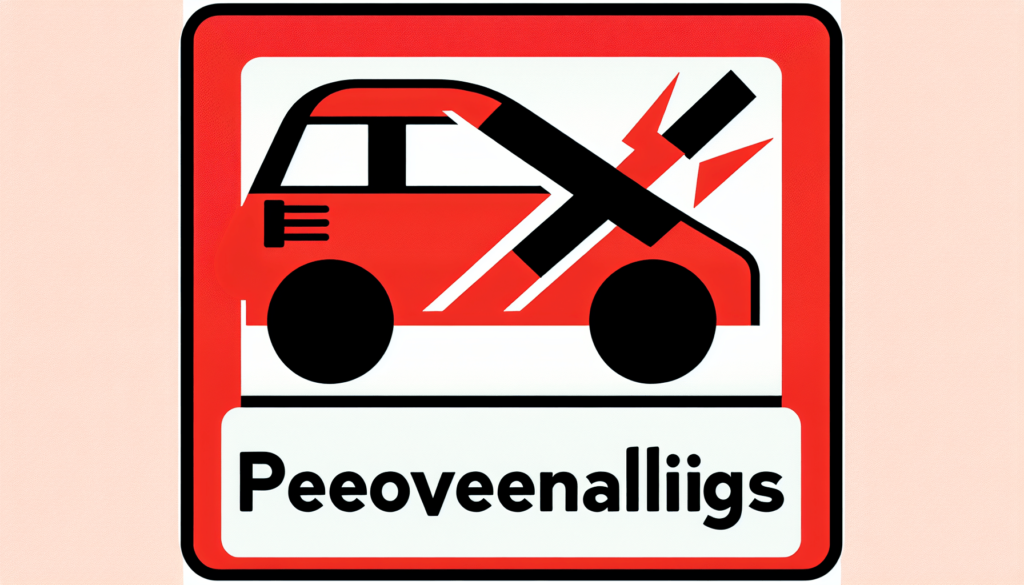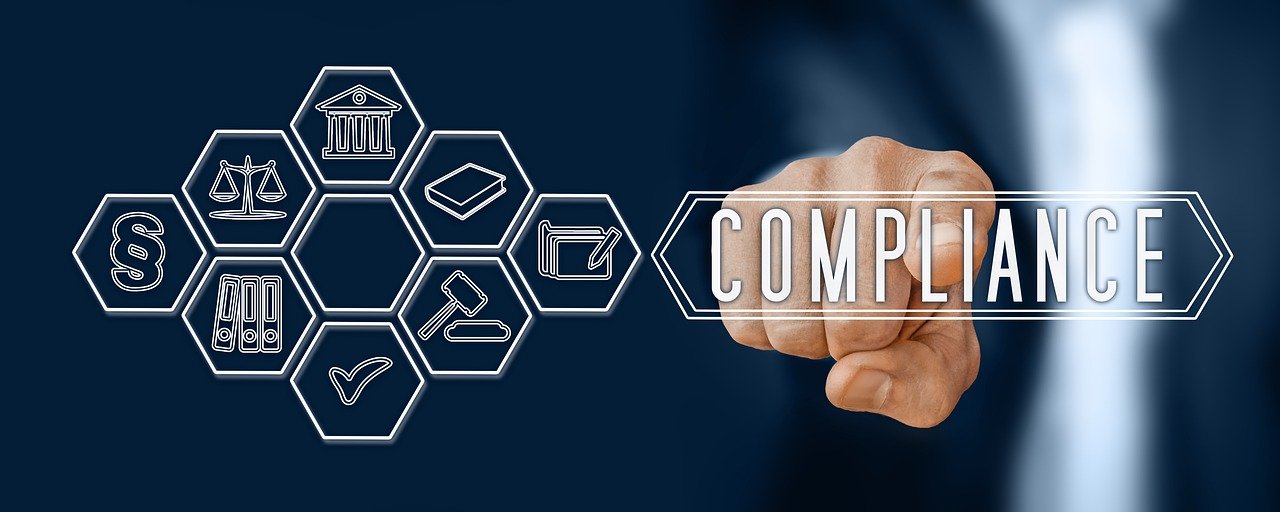Have you ever wondered what happens if you fail to comply with electric vehicle (EV) regulations? In this article, we’ll explore the potential penalties that await those who don’t adhere to EV regulations. From fines to legal consequences, it’s crucial to understand the consequences that could arise from non-compliance. So, let’s dive into the world of EV regulations and discover what happens when you don’t play by the rules.

Overview of EV Regulations
Electric vehicle (EV) regulations have been implemented by governments across the world to encourage the adoption of environmentally friendly transportation. These regulations outline the requirements for EV manufacturers, owners, and operators to ensure compliance with emission standards and other sustainability benchmarks. By setting guidelines for the production, use, and maintenance of electric vehicles, these regulations aim to promote cleaner and more sustainable modes of transportation.
Explanation of EV Regulations
EV regulations typically cover various aspects of electric vehicle use, including vehicle emissions, charging infrastructure, and maintenance requirements. These regulations establish emission limits, testing procedures, and certification processes that manufacturers must adhere to when producing electric vehicles. They also outline the responsibilities and obligations of EV owners and operators, such as regular maintenance checks, reporting of emissions data, and utilization of appropriate charging infrastructure.
Purpose of Implementing EV Regulations
The implementation of EV regulations serves several important purposes. Firstly, it aims to reduce the harmful effects of transportation on the environment by encouraging the use of vehicles with lower or zero emissions. By setting emission limits and promoting the adoption of electric vehicles, governments aim to decrease air pollution, combat climate change, and improve overall air quality for their citizens. Secondly, these regulations help promote the development of a sustainable and resilient transportation system that relies less on fossil fuels and more on renewable energy sources. Finally, by encouraging the use of electric vehicles, governments seek to reduce their dependence on imported oil and enhance their energy security.
Importance of Compliance
Compliance with EV regulations is of utmost importance to ensure the successful implementation of sustainable transportation systems. When individuals and businesses comply with these regulations, they contribute to reducing the negative environmental impacts associated with traditional gasoline and diesel vehicles. By transitioning to electric vehicles, harmful emissions, such as carbon dioxide and air pollutants, can be significantly reduced, leading to improved air quality and a healthier environment for all.
Environmental Impact of Non-Compliance
Non-compliance with EV regulations can have detrimental environmental consequences. Vehicles that do not meet emission standards or fail to utilize the appropriate charging infrastructure continue to contribute to air pollution and greenhouse gas emissions. This not only harms the environment but also endangers public health, as exposure to high levels of air pollutants can lead to respiratory problems and other health issues. Non-compliance also undermines the efforts made to transition to cleaner energy sources and hinders the achievement of sustainability goals.
Promoting Sustainable Transportation
Complying with EV regulations is not only about avoiding penalties but also about promoting sustainable transportation. By adhering to these guidelines, individuals and businesses contribute to the overall reduction of greenhouse gas emissions, helping combat climate change and mitigate its adverse effects. Moreover, compliance is an opportunity to encourage the development of more advanced and efficient electric vehicles, thus driving innovation in the automotive industry and creating a market for sustainable transportation solutions.
Penalties for Non-Compliance
Non-compliance with EV regulations can result in a range of penalties, which vary depending on the severity of the violation and the jurisdiction in which it occurs. These penalties can be financial, administrative, or even criminal, aiming to incentivize compliance and deter non-compliant behavior.
Fines and Monetary Penalties
One of the most common penalties for non-compliance with EV regulations is the imposition of fines and monetary penalties. These fines can be substantial, depending on the severity of the violation and the jurisdiction in which it occurs. The purpose of these fines is to provide a monetary deterrent, encouraging individuals and businesses to comply with the regulations and avoid incurring financial burdens or liabilities.
Penalties for Exceeding Emission Limits
Exceeding emission limits set by EV regulations can result in significant penalties. These penalties are typically aimed at discouraging the use of vehicles that contribute to high levels of air pollution. By imposing fines or other measures on those who exceed emission limits, governments seek to promote the adoption and use of electric vehicles that have lower or zero emissions. These penalties serve as a means of holding non-compliant individuals and businesses accountable for their actions and encouraging them to transition to cleaner modes of transportation.
Loss of Incentives and Subsidies
Non-compliance with EV regulations may also result in the loss of government incentives and subsidies that are designed to promote the adoption of electric vehicles. These incentives can include tax credits, grants, or subsidies for the purchase, installation, or operation of electric vehicles. By revoking these incentives, governments aim to discourage non-compliance and ensure that individuals and businesses are fully committed to sustainable transportation practices.
Suspension of Vehicle Registration
In some cases, non-compliance with EV regulations can result in the suspension of vehicle registration. This means that individuals or businesses may be prohibited from legally operating their vehicles until they meet the necessary compliance requirements. Suspension of vehicle registration serves as a serious consequence for non-compliance and emphasizes the importance of adhering to EV regulations to ensure the safe and responsible operation of electric vehicles.
Revocation of Operating Licenses
For businesses or organizations involved in the operation of electric vehicles, non-compliance with EV regulations can lead to the revocation of operating licenses. This can have severe consequences for the operations of these entities, potentially resulting in financial losses or the termination of their activities. The revocation of operating licenses serves as a significant penalty, encouraging businesses to prioritize compliance and operate within the bounds of the regulations.
Criminal Charges and Imprisonment
In cases of particularly egregious or repeated non-compliance, criminal charges can be filed, leading to imprisonment or other legal consequences. These charges are usually reserved for individuals or businesses that intentionally violate EV regulations, causing significant harm to the environment or public health. By treating non-compliance as a criminal offense, governments demonstrate their commitment to enforcing sustainability measures and deterring unlawful behavior.
Enforcement Agencies
The effective implementation of EV regulations relies on dedicated government enforcement agencies responsible for ensuring compliance and enforcing penalties when necessary. These agencies play a crucial role in monitoring, inspecting, and regulating the compliance of manufacturers, owners, and operators of electric vehicles.
Government Enforcement Agencies
Government enforcement agencies responsible for EV regulations may vary from one jurisdiction to another. In some countries, this responsibility falls under the jurisdiction of environmental protection agencies or ministries, while in others, dedicated transportation or energy agencies are in charge. The primary role of these agencies is to enforce compliance with the regulations, take appropriate action against non-compliance, and educate stakeholders about their obligations and responsibilities.
Roles and Responsibilities
Enforcement agencies have several key roles and responsibilities in the context of EV regulations. These include monitoring and inspecting the activities of manufacturers, owners, and operators to ensure compliance with emission limits, charging infrastructure requirements, and other applicable regulations. They are also responsible for conducting regular audits and tests to verify compliance, addressing complaints or reports of non-compliance, and imposing penalties or taking legal action when necessary.
Monitoring and Inspection Procedures
To effectively enforce EV regulations, government enforcement agencies employ various monitoring and inspection procedures. These procedures can include on-site inspections of manufacturing facilities, random checks of vehicles and charging stations, analysis of emissions data, and audits of maintenance records. By employing these monitoring and inspection procedures, agencies can identify non-compliance and take appropriate actions to ensure the adherence to EV regulations.
Legal Framework
The legal framework surrounding EV regulations includes laws and regulations that govern the compliance of manufacturers, owners, and operators of electric vehicles. These legal frameworks establish the basis for enforcing compliance, delineate the rights and responsibilities of stakeholders, and provide guidance on the implementation of sustainable transportation policies.
Laws and Regulations Governing EV Compliance
EV regulations are typically based on a set of laws and regulations that outline the requirements, standards, and processes related to the production, use, and maintenance of electric vehicles. These laws can cover a wide range of aspects, including emission limits, charging infrastructure, safety requirements, and reporting obligations. By establishing clear guidelines, these laws and regulations provide a legal framework for enforcing compliance and ensuring the responsible operation of electric vehicles.
Jurisdiction-Specific Regulations
While there may be overarching international or national standards, EV regulations can also be specific to particular jurisdictions. This is because different areas may have unique environmental concerns, energy resources, or transportation priorities. Jurisdiction-specific regulations allow governments to tailor their requirements and set realistic targets and standards that align with their specific contexts. These regulations can encompass local emission limits, charging infrastructure mandates, or other criteria that reflect the specific needs and considerations of the jurisdiction.
International Agreements and Standards
In addition to national or local regulations, there are also international agreements and standards that influence and guide the development of EV regulations. These agreements, such as the Paris Agreement, aim to tackle climate change and promote sustainable development on a global scale. They may establish emission reduction targets, encourage the use of clean energy sources, or facilitate international cooperation in adopting EV regulations. By aligning their regulations with international standards, governments contribute to a cohesive global effort to address environmental challenges.
Mitigating Non-Compliance Risks
To effectively promote compliance with EV regulations, stakeholders must take proactive measures to mitigate non-compliance risks. These measures involve educating stakeholders, providing support and guidance, creating awareness campaigns, and developing incentives that encourage compliance.
Educating Stakeholders About Regulations
A crucial step in mitigating non-compliance risks is to educate stakeholders, including manufacturers, owners, and operators, about the regulations and their obligations. Government enforcement agencies, industry associations, and other relevant organizations can organize training sessions, workshops, or seminars to inform stakeholders about the requirements, standards, and reporting procedures. By ensuring that stakeholders are well-informed, governments increase the likelihood of compliance and minimize the risk of inadvertent non-compliance.
Providing Support and Guidance
Governments and relevant institutions should provide ongoing support and guidance to stakeholders to facilitate compliance. This can include providing access to resources, such as technical guidance documents, best practices, and case studies that demonstrate successful compliance strategies. Additionally, governments can establish helpdesks or hotlines to address inquiries, clarify regulatory requirements, and provide assistance in implementing the necessary measures to achieve compliance.
Creating Awareness Campaigns
Raising awareness about EV regulations and the benefits of compliance is essential for ensuring widespread adherence. Governments can develop awareness campaigns targeting both the general public and specific stakeholder groups. These campaigns can use various communication channels, such as social media, advertisements, and public events, to highlight the importance of sustainable transportation, the environmental impacts of non-compliance, and the incentives and advantages of using electric vehicles. By fostering a culture of compliance and environmental responsibility, governments can encourage long-term adherence to EV regulations.
Developing Incentives for Compliance
To further encourage compliance, governments can develop incentives that reward individuals and businesses for adopting and complying with EV regulations. These incentives can include financial rewards, tax credits, priority access to charging infrastructure, or additional benefits for compliant vehicles, such as reduced toll fees or free parking. By offering tangible benefits and rewards, governments create positive reinforcement for compliance and motivate stakeholders to transition to electric vehicles and adhere to the regulations.

Case Studies
Examining case studies of penalties imposed for non-compliance with EV regulations highlights the real-world consequences faced by individuals or businesses. These examples serve as lessons learned and emphasize the importance of adherence to EV regulations.
Examples of Penalties Imposed for Non-Compliance
In a recent case in Country X, a company was fined $100,000 for selling electric vehicles that exceeded emission limits. The fine was intended to penalize the company for non-compliance and encourage them to improve their manufacturing processes to align with the environmental standards set by the regulations. Similarly, in Country Y, an individual was charged with a criminal offense and sentenced to six months in prison for tampering with the emissions control system of their electric vehicle. These penalties demonstrate the seriousness with which governments enforce EV regulations and reinforce the importance of adhering to them.
Consequences Faced by Non-Compliant Individuals or Businesses
Non-compliant individuals or businesses may face a range of consequences as a result of their non-compliance. These consequences can include financial losses due to fines or loss of incentives, reputational damage, legal liabilities, or even imprisonment in severe cases. When non-compliance is publicly disclosed or reported, it can lead to a loss of trust from customers, partners, or investors, impacting the long-term viability of the individual or business. These consequences underscore the significance of compliance and the potential risks associated with non-compliance.
Appeals and Dispute Resolution
To ensure fairness and the protection of rights, processes for appealing penalties and resolving disputes related to EV regulations must be in place. These mechanisms, whether administrative or judicial, allow individuals or businesses to voice concerns, provide evidence, and seek a fair resolution.
Procedures for Appealing Penalties
If individuals or businesses believe that penalties imposed for non-compliance with EV regulations are unjust or unwarranted, they can follow specific procedures to appeal these penalties. This usually involves submitting an appeal or objection to the relevant enforcement agency or regulatory body, providing relevant evidence or documentation, and presenting arguments supporting the appeal. The enforcement agency or regulatory body will then review the appeal and make a decision based on the merits of the case.
Dispute Resolution Mechanisms
In cases where there are disagreements or disputes between stakeholders regarding compliance with EV regulations, dispute resolution mechanisms play a crucial role. These mechanisms can involve mediation, arbitration, or alternative dispute resolution methods to facilitate the resolution of conflicts. By providing a neutral and impartial platform for dialogue and negotiation, these mechanisms aim to resolve disputes quickly and efficiently, avoiding lengthy and costly legal proceedings.
Role of Administrative or Judicial Bodies
Administrative or judicial bodies have a responsibility to oversee the appeals and dispute resolution processes related to EV regulations. These bodies review appeals, consider relevant evidence, and make decisions based on the applicable laws and regulations. Their role is to ensure that penalties are fair and proportionate and that all parties involved have the opportunity to present their case and challenge any decisions made.

Future of EV Regulations
As the world continues to prioritize sustainability and emissions reduction, the future of EV regulations is expected to evolve to meet new challenges and objectives. These future regulations will likely focus on advancing technology, setting ambitious targets, and actively involving the automotive industry in the transition to electric vehicles.
Evolving Regulations and Standards
EV regulations will continue to evolve to keep pace with advancements in technology and address emerging challenges. These regulations may include updated emission limits, requirements for improved battery technology, or specifications for charging infrastructure. Governments will also collaborate with international partners to align standards and harmonize regulations, promoting interoperability and facilitating the adoption of electric vehicles across borders.
Long-term Goals and Targets
The future of EV regulations will likely be guided by long-term goals and targets. These goals may include achieving certain percentages of electric vehicles in national or regional vehicle fleets, reducing the carbon intensity of transportation, or increasing the availability of charging infrastructure. By setting clear targets, governments provide a roadmap for the transition to electric vehicles and create a framework for measuring progress towards sustainability goals.
Implications for the Automotive Industry
EV regulations will have significant implications for the automotive industry. As governments increase their focus on sustainable transportation, automakers will be incentivized to invest in electric vehicle technology and develop more efficient and affordable electric vehicle models. This transition will likely bring about substantial changes in the way vehicles are manufactured, marketed, and sold. It will also drive innovation in energy storage, charging technologies, and other supporting infrastructure. The automotive industry will need to adapt to these changing regulations and consumer preferences to stay competitive in the evolving market.
Conclusion
The implementation and enforcement of EV regulations are vital for promoting sustainable transportation and mitigating the environmental impact of vehicles. Compliance with these regulations is not only crucial for avoiding penalties but also for contributing to the reduction of greenhouse gas emissions and improving air quality. Governments play a central role in ensuring compliance through enforcement agencies, penalties, and support mechanisms. By continuing to develop and evolve EV regulations, governments can drive the transition to cleaner and more sustainable modes of transportation, positioning their countries for a greener future.


